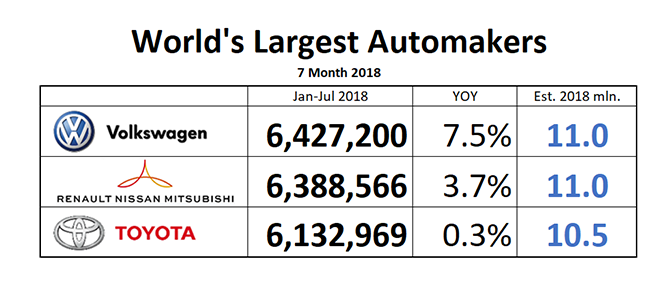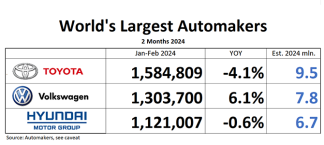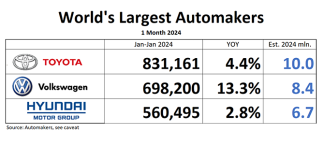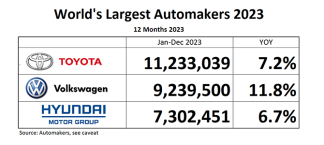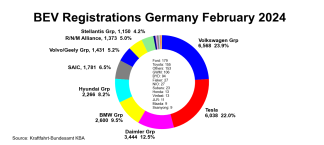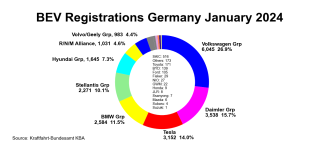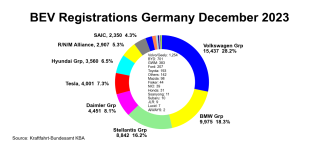While one of the world’s smallest automakers hogs the broadsheets with tweets about alleged pedophiles, the true drama is happening in the spreadsheets. The race for World’s Largest Automaker 2018 keeps being more exciting than Formula 1, with the giants of the business trading positions month after month. Normally, the race would be pretty much decided at the time of the year, but not this time.
In July, the Volkswagen Group, having produced nearly 6.5 million units so far this year, regained a thin lead over its new nemesis, the Renault-Nisan-Mitsubishi Alliance, which had led the field at halftime. Volkswagen edged past the Alliance due to a mighty push in July, when its global registrations increased nearly 11% over the same month in 2017. Its biggest growth was in Europe, where deliveries rocketed up 24%.
AID Newsletter analyst Matthias Schmidt has a close eye on the EU market, and he reckons the huge push might have something to do with WLTP regulations coming in effect in the EU on September 1, and VW sitting on stockpiles of not WLTP-compliant cars that will be unsalable next week. According to Schmidt, “Renault Nissan could leapfrog VW in September (strong month in Europe thanks to UK boost) thanks to VW’s WLTP mess in Europe, although they expect correction in last few months once they have all licenses.”
At the Alliance, less than 40,000 units behind Volkswagen YTD, the unit driver clearly is Renault with YTD deliveries up 7.5% in the first 7 month of the year. Percentage-wise, the strongest Alliance member keeps being Mitsubishi Motors. Its global production increased 23% January through July. The Alliance keeps being held back by Nissan (-4.2% YTD) which is still working through its prior problems with Japanese authorities.
Meanwhile, 3rd-placed Toyota is less and less likely to gain one of the upper positions of the podium. Volkswagen and the Alliance could both reach 11 million units produced by the end of the year. Toyota is expected to end the year with half a million less.
Note: This analysis attempts to track production, not sales, because this is how the world automaker umbrella organization OICA ranks automakers.
Due to the different methodologies of their measurement, “sales” numbers have proven to be unreliable, and prone to ‘sales reporting abuses,” as recent scandals in the U.S., along with rampant “self-registrations” in the EU have shown.
At the same time, data reported by automakers are becoming increasingly hard to compare.
Toyota reports production only. Volkswagen reports “deliveries” to wholesale – which is, at least for this exercise, close enough to production. The Alliance numbers are a blend of production data reported by Nissan and Mitsubishi, and deliveries reported by Renault.
This month, the exercise was especially challenging, with all of France, including Renault, on vacation, and the usually well-kept spreadsheets kept untended until everybody is back to work.
